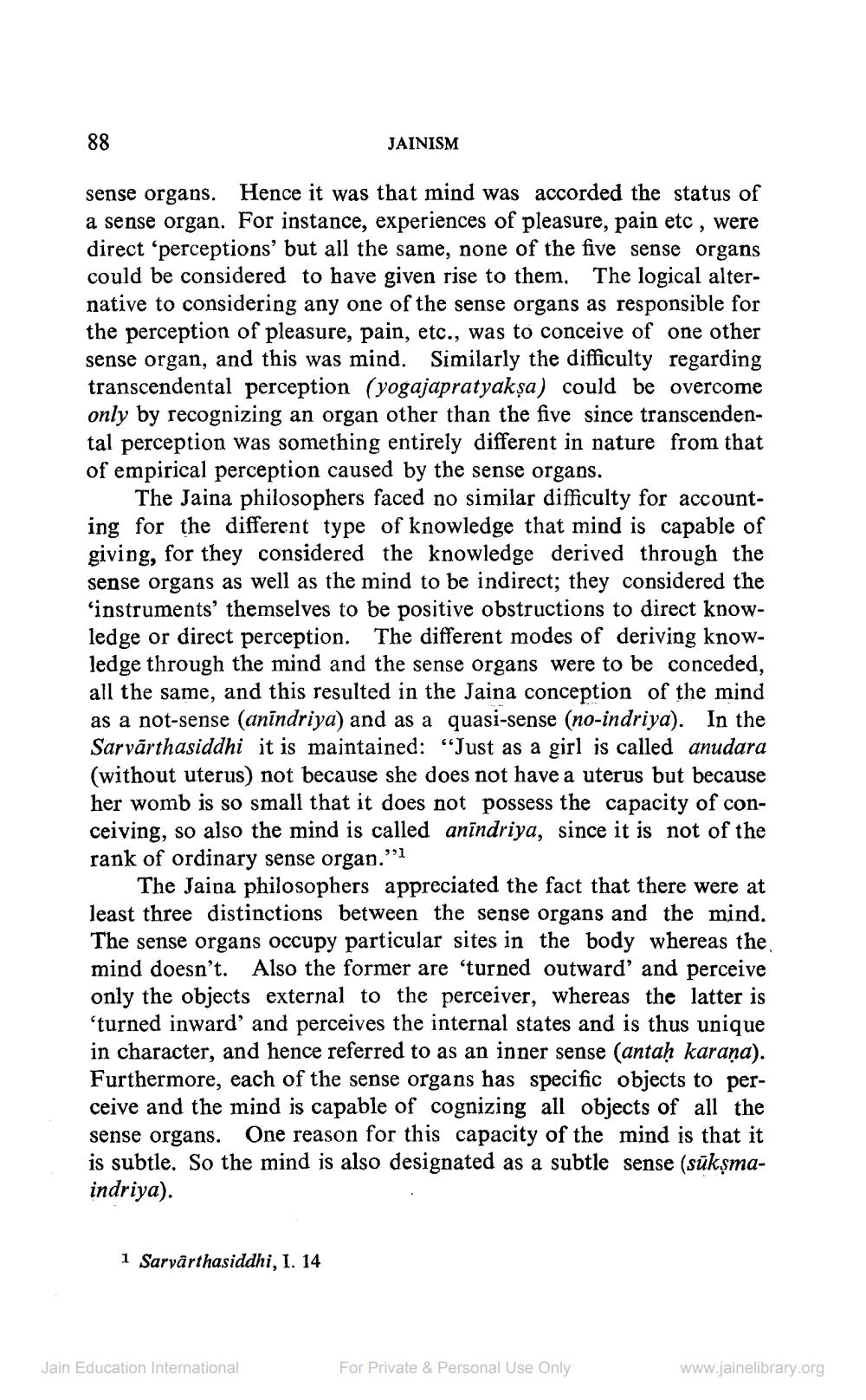________________
88
sense organs. Hence it was that mind was accorded the status of a sense organ. For instance, experiences of pleasure, pain etc, were direct 'perceptions' but all the same, none of the five sense organs could be considered to have given rise to them. The logical alternative to considering any one of the sense organs as responsible for the perception of pleasure, pain, etc., was to conceive of one other sense organ, and this was mind. Similarly the difficulty regarding transcendental perception (yogajapratyakṣa) could be overcome only by recognizing an organ other than the five since transcendental perception was something entirely different in nature from that of empirical perception caused by the sense organs.
The Jaina philosophers faced no similar difficulty for accounting for the different type of knowledge that mind is capable of giving, for they considered the knowledge derived through the sense organs as well as the mind to be indirect; they considered the 'instruments' themselves to be positive obstructions to direct knowledge or direct perception. The different modes of deriving knowledge through the mind and the sense organs were to be conceded, all the same, and this resulted in the Jaina conception of the mind as a not-sense (anīndriya) and as a quasi-sense (no-indriya). In the Sarvārthasiddhi it is maintained: "Just as a girl is called anudara (without uterus) not because she does not have a uterus but because her womb is so small that it does not possess the capacity of conceiving, so also the mind is called anindriya, since it is not of the rank of ordinary sense organ."
"1
The Jaina philosophers appreciated the fact that there were at least three distinctions between the sense organs and the mind. The sense organs occupy particular sites in the body whereas the mind doesn't. Also the former are 'turned outward' and perceive only the objects external to the perceiver, whereas the latter is 'turned inward' and perceives the internal states and is thus unique in character, and hence referred to as an inner sense (antaḥ karaṇa). Furthermore, each of the sense organs has specific objects to perceive and the mind is capable of cognizing all objects of all the sense organs. One reason for this capacity of the mind is that it is subtle. So the mind is also designated as a subtle sense (sūkṣmaindriya).
1 Sarvarthasiddhi, I. 14
JAINISM
Jain Education International
For Private & Personal Use Only
www.jainelibrary.org




